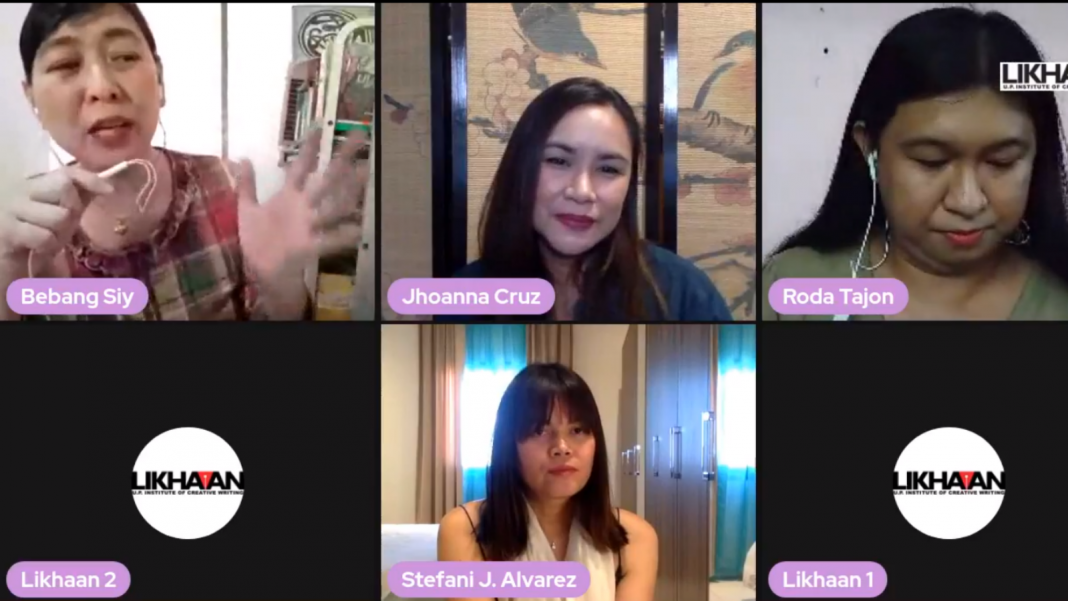There are many stories to tell about women and members of the LGBTQ, writers said in an online discussion last Feb. 27.
Stefani Alvarez, an award-winning transgender author, said that even the simplest form of writing, especially for queer women, is a process of self-discovery and expression of experiences.
“Kapag tinitignan ko, ang simpleng pagsusulat, isa siyang pagtuklas. Sa bawat kudlit, sa guhit ng bawat titik, nabubuo ang self-identity,” Alvarez said.
Alvarez wrote “Ang Autobiografia ng Ibang Lady Gaga,” a recipient of the Manila Critics’ Circle’s Best Book of Non-Fiction Prose in Filipino award.
Roda Tajon, a writer for Gantala Press, an independent, non-profit, volunteer-run feminist publisher, said transgenders lacked opportunities to explore the Philippine writing scene.
“Mayroon ngang iilang opportunities tulad ng national workshops, pero hindi laging nabibigyan ng pagkakataon ang mga trans women na makalahok sa mga activities na ganoon,” Tajon said.
Beverly “Bebang” Siy, a former fellow of UST’s creative writing workshop, lamented that women were prone to “classifying” or excluding transwomen from women-centric communities, groups and discussions.
“Oo, nakakalungkot talaga e, na kapwa-babae ang nang-uuri pa ng transwomen, pero, wala rin sa gender. Talagang mapa-babae ka o lalaki, masama talaga ang mang-uri ng trans women.”
Tajon said writers should try to narrate stories of people from underrepresented sectors to “change society.”
“Para magkaroon ng substance you have to bring light; kailangan mag-transcend ka as a writer na nakakapag-engage ng maraming tao para kumilos sila para baguhin ang kalagayan.”
Jhoanna Lynn Cruz, author of “Women Loving: Stories and A Play,” an anthology of lesbian-themed stories set in the Philippines, said her substance as a writer grew after writing about what she stood for.
She also lamented the “systematic erasure” of lesbian writing in Philippine literature.
“Part of the invisibility is my own lack of productivity, and the other part, is the systematic erasure of lesbian writing in Philippine literature,” she said.
To tell stories that are unique to women and particularly, queer women, Cruz said “patriarchal and heteronormative-established genres and forms of literary writing” should be “exploded.”
“It (story) should not be forced into those conventional narratives and forms of writing tropes,” she added.
The online forum was dubbed “I Have Something to Say: Women Writers on Political Maturity and Substance in Writing.”
The webinar was organized by Likhaan: University of the Philippines Institute of Creative Writing as part of its “PAN 2021: Panayam sa Panitikan sa Panahon ng Pandemya” series. Sofia Bernice F. Navarro














